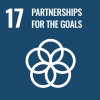IOM and the Malaysian Ministry of International Trade and Industry Hold Webinar to Guide Malaysian Businesses through Forced Labour Frameworks
Kuala Lumpur, December 17, 2020 – The International Organization for Migration (IOM) and the Malaysian Ministry of International Trade and Industry (MITI) jointly hosted the webinar “Forced Labour: The US, UK and Australian Perspective”. The webinar aimed to guide Malaysian small and medium-sized enterprises (SMEs) through the forced labour frameworks of the United States of America (US), the United Kingdom (UK) and Australia. Attended by over 370 attendees, this event included speakers from the IOM, MITI, the Malaysian Ministry of Human Resources, and industry experts.
The webinar built the capacities of Malaysian SMEs as exporters to these major importing countries and equipped them with know-how to prevent legal, reputational, and financial risks to their businesses. “The US Customs and Border Protection (CBP), restricts certain goods in Malaysia [from entering the US]. This has caused a loss in revenue and impaired the companies’ reputation,” said MITI Deputy Secretary-General for Industrial Development, Dato’ Sri Norazman Ayob, in his opening remarks on the impact of forced labour allegations.
“The US, UK and Australia are major importing nations; a lot of Malaysian businesses including SMEs export to these countries and now there is increased attention on Malaysia with the news about the US ban of palm oil and rubber gloves. Malaysian businesses must take this issue seriously,” said Joanne Chua, National Programme Officer, IOM Malaysia, who introduced how forced labour laws in the US, UK, and Australia could affect Malaysian SMEs.
Mathew Thomas Philip, Managing Partner of Thomas Philip Advocates & Solicitors, an industry representative, shared his experience from the lift of a US ban on merchandise produced by forced labour and reminded businesses that they must treat migrant workers humanely if they are serious about eliminating labour exploitation.
The webinar participants were also updated on the Malaysian Government’s efforts to address forced labour in the private sector and their approach to enforcement of related laws. According to Mohd Asri Abd Wahab, Deputy Director General (Operational) in the Department of Labour, Ministry of Human Resources Malaysia, the government conducted 1,322 enforcement and inspection activities related to workers’ accommodations in Peninsular Malaysia since the 1st of September, 2020 to ensure decent housing standards for all workers.
Also representing the industry, Balan Shanmuganathan, Senior Director (Sustainability) of Seagate Technology shared his and other multi-national companies expectations of suppliers in their efforts to address forced labour within supply chains. He emphasized that adequate due diligence is important to strengthen protection of workers’ rights.
This initiative is part of the IOM Corporate Responsibility in Eliminating Slavery and Trafficking (CREST) which aims to enhance the protection of the human and labour rights of migrant workers in business operations and international labour supply chains.
For more information, please contact IOM at mycrest@iom.int
Media Contacts:
Joanne Tsu Fae Chua, National Programme Officer
International Organization for Migration – UN Migration Agency
Phone: +6016 663 0148
jochua@iom.int
























